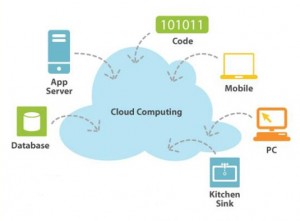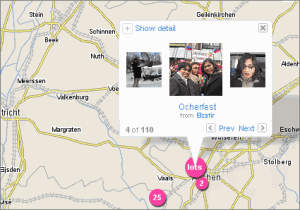The global positioning system, more commonly referred to as GPS, has been around for just 10 years, yet many of us can’t imagine what life would be without it. Resorting back to the days of reading maps and printing out directions from the Internet would be a major inconvenience for many people. However, with all of the advancements that GPS has undergone since its birth, our navigating efficacy wouldn’t be the only thing affected if the technology were to suddenly disappear tomorrow. To gain a better understanding of just how much we all rely on the GPS to bring convenience and productivity to our lives, consider the following top five ways the GPS is re-mapping our world.
1. Google Glasses
Google’s latest high-tech innovation Project Glass will allow users to adventure out into the real world without ever having to leave the digital one behind. Google Glasses utilize voice-activated technology to make it easier to access the Web, contact friends, get directions and schedule events without lifting a finger or even losing eye contact with the world around you. Naturally, this on-the-go device relies primarily on GPS technology for optimum function, which is just one of the many ways this technology makes our lives easier.
2. Cloud Computing
Cloud-based GPS tracking systems come with several notable advantages, including hassle-free updating, faster access to new features, and full access to your important files anywhere and anytime. Cloud computing saves both time and money, while also giving you more flexibility in terms of which device to use to complete everyday tasks. No need for downloading, keeping a flash drive on hand, or emailing your documents to yourself, everything is available right in the cloud wherever you go.
3. Location-Based Marketing
Ever wonder how the ads on the websites you visit always seem to reference the city your live in? This is due to location-based marketing, and it’s made possible by GPS technology. By collecting information about the consumer’s location– whether at home or on-the-go– marketers can more effectively target customers according to the likelihood of their interest in a particular company. For example, a local Chicago hair salon just outside of the city would be best advertised to those who are located in this region according to GPS information, rather than everyone in the entire country.
4. Fleet Tracking
From delivery vehicles to public transportation, GPS fleet tracking helps to improve efficiency and save millions of gallons of fuel each year. By saving fuel, fleet tracking reduces the carbon footprint of the global supply chain, while simultaneously increasing profit for the companies who utilize this unique and innovative service. The process typically includes installing the GPS module onto each vehicle in an effort to track the vehicle’s exact location at all times. Many sophisticated devices can even measure speed, engine activity, routes, idling and more, so companies are always aware of the whereabouts and status of their vehicles.
5. Geotagging Photos
Although it may not be the most life-changing benefit of GPS, the ability to geotag photos has made it easier to record and share more information with friends in social networks and through email. Years down the line, this feature can allow you to relive fond memories in detail, even when you’ve forgotten the exact location where these memories took place.
After reflecting on these five major benefits of GPS technology, it’s even clearer that living without it would have a dramatic impact on the convenience that we likely take for granted now. What’s more: the fact that GPS has made all of these incredible things possible in just a short 10-year span provokes excitement for what the next 10 years holds for making our lives easier with GPS.



